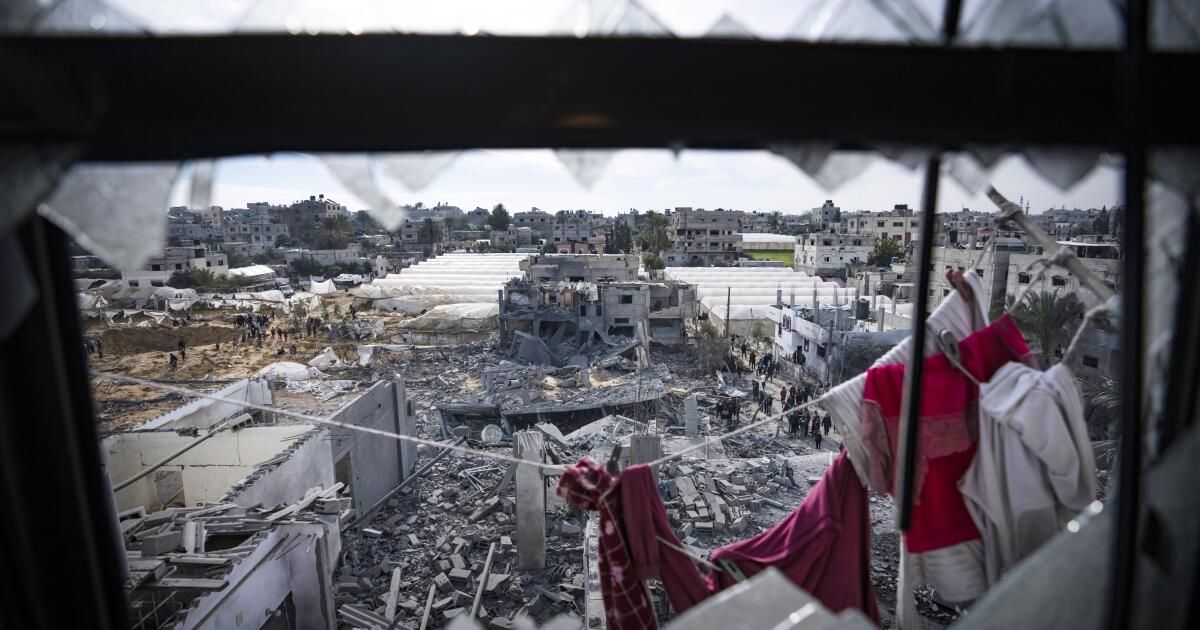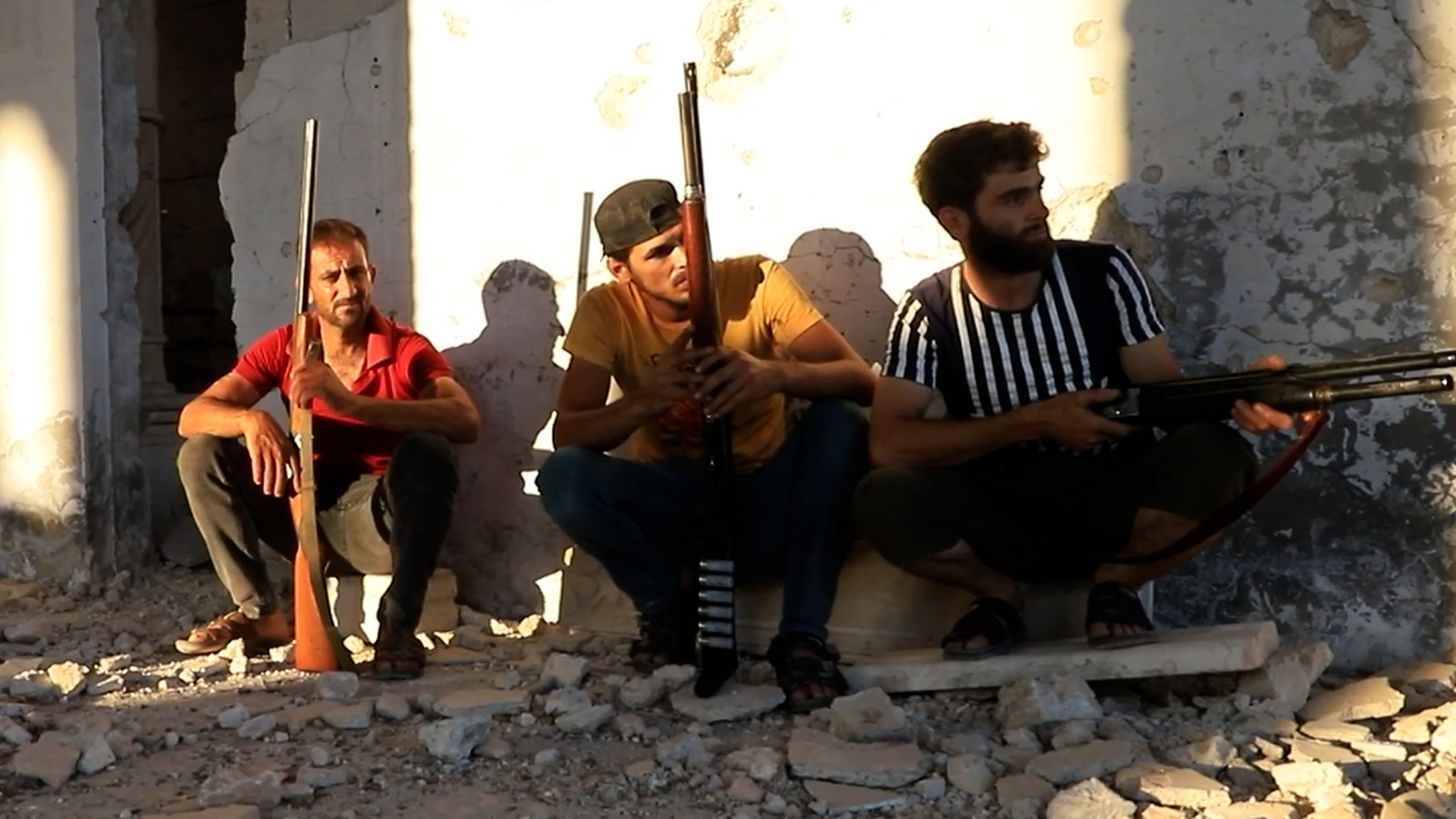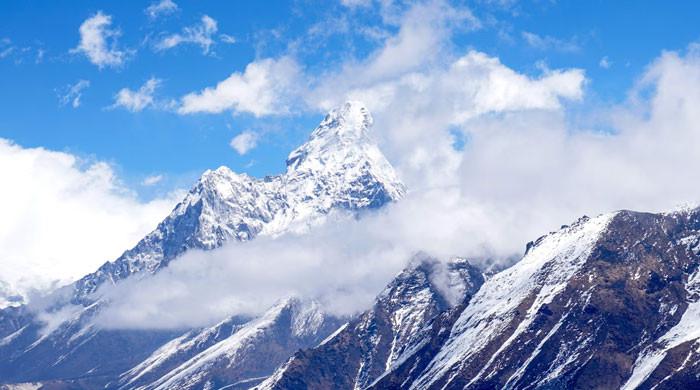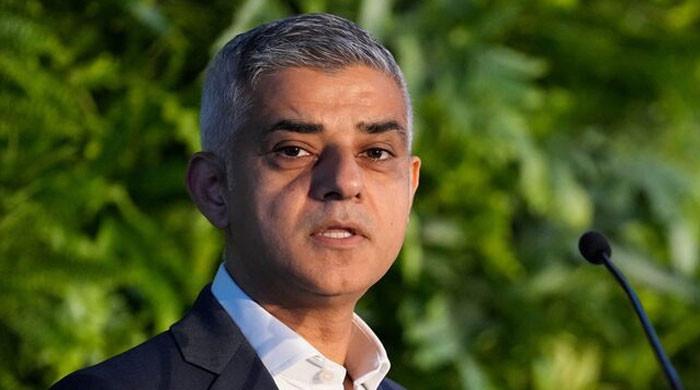Standing in front of an open space where the windows of her family's sixth-floor apartment were blown out, Sara Ashour watched as the Rafah bombing got closer and closer on Monday.
“We started wondering when the roof would fall on our heads,” said the 23-year-old content marketing writer. “We are up high, so we could see everything in front of us as if it were a live broadcast. … I wouldn't even wish the Israelis a night like this.”
Israeli officials described the hour-long bombardment in Rafah as a “detour” to allow a special forces team to mount a rescue operation for two hostages. At least 74 Palestinians died in the process, Gaza health authorities said.
Soldiers from southern Israel head towards the Gaza Strip on Tuesday. The military is fighting Palestinian militants across Gaza in the war sparked by the Oct. 7 Hamas cross-border attack in Israel.
(Ariel Schalit / Associated Press)
For the 1.4 million people (nearly two-thirds of the besieged population of the Gaza Strip) now crammed into this city along the border with Egypt, fears are spreading that an Israeli ground attack on Rafah will would leave no place to escape to.
“The sound of the attacks we heard last night… you couldn't imagine it,” said Jamalat al Kurd, a 52-year-old housewife from Rafah. “You're too scared to move because you don't know what's coming from above, so we stay inside.”
Israeli authorities previously designated Rafah as a safe zone from bombing, causing the city's population to increase more than four times its original number. Six more families took refuge in the Al Kurd apartment building alone.
“If they attack Rafah, where can we go? The Egyptian border? The sea? “She asked. A single mother (her husband had died in Israel's campaign in Gaza in 2009), Al Kurd cares for her five children, as well as the children of displaced relatives and friends from other countries. parts of the territory.
“If we leave, who do I choose to take?” she asked. “The one-month-old baby or the 2-year-old? It's not a choice. “It is better to be killed with my family than to be displaced.”
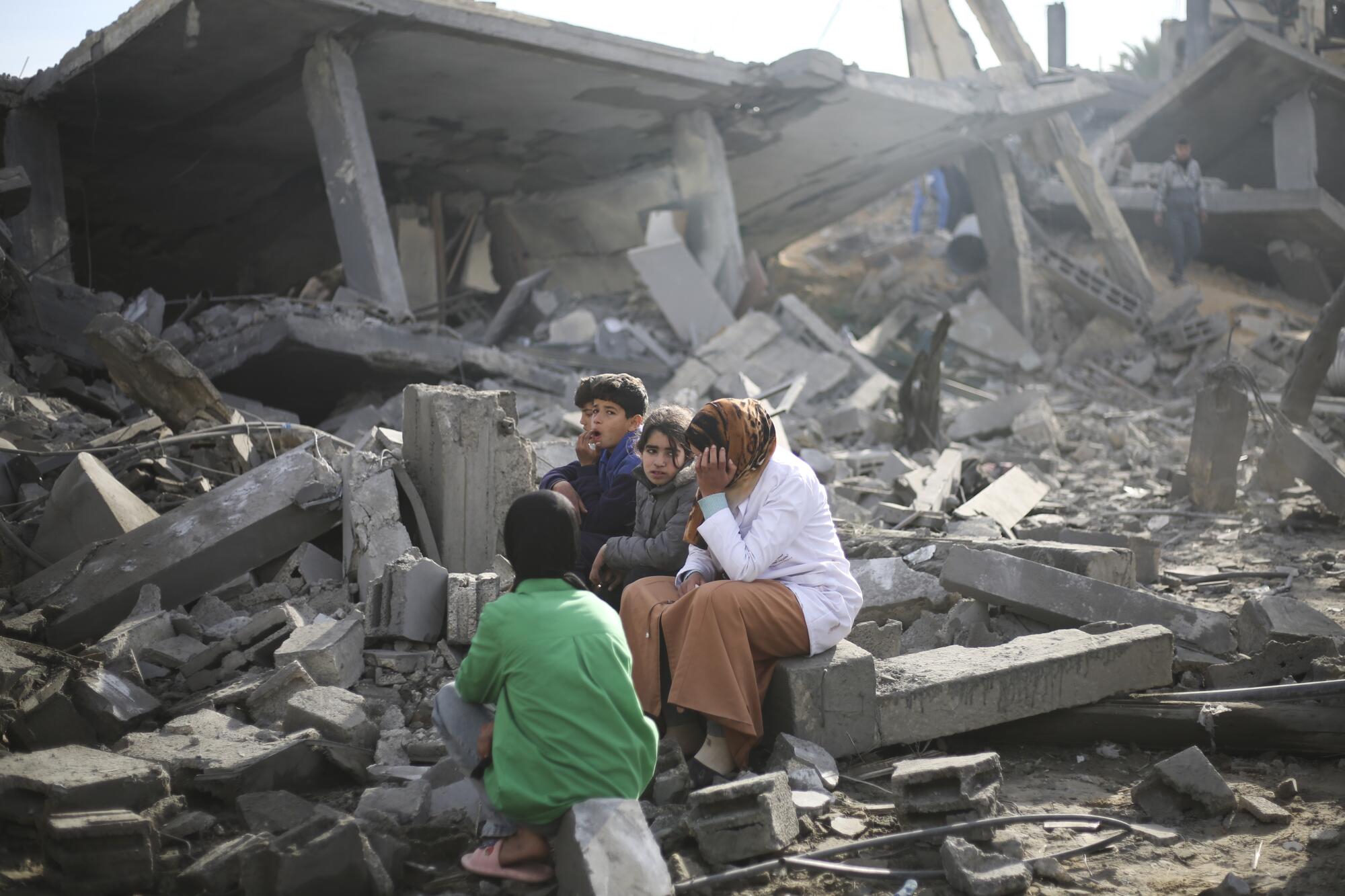
Palestinians in Rafah observe the destruction caused by the Israeli bombing of the Gaza Strip on Monday.
(Hatem Ali / Associated Press)
Egypt has warned Israel that it will keep its border with Gaza sealed to prevent the large-scale displacement of Palestinians to its territory without being clear when they will be able to return to the enclave.
Monday's bombing comes more than four months after the most devastating conflict the Gaza Strip has ever seen, triggered by the Hamas militant group's lightning operation on October 7, which killed some 1,200 people, two-thirds of them civilians. Some 240 Israelis and foreigners were kidnapped and returned to Gaza, according to Israel's official count.
Israel's retaliation campaign has so far killed 28,340 people, most of them women and children, health authorities in Hamas-controlled Gaza say. It has destroyed buildings and infrastructure, leveling neighborhoods in a territory the size of Detroit.
Israeli officials say an attack on Rafah now will take down Hamas and free the remaining hostages.
After the overnight raid that rescued two Israeli-Argentine men – Fernando Simon Marman, 60, and Louis Har, 70 – Prime Minister Benjamin Netanyahu said on social media that “only the continuation of military pressure, until complete victory will result in the release of all our hostages.”
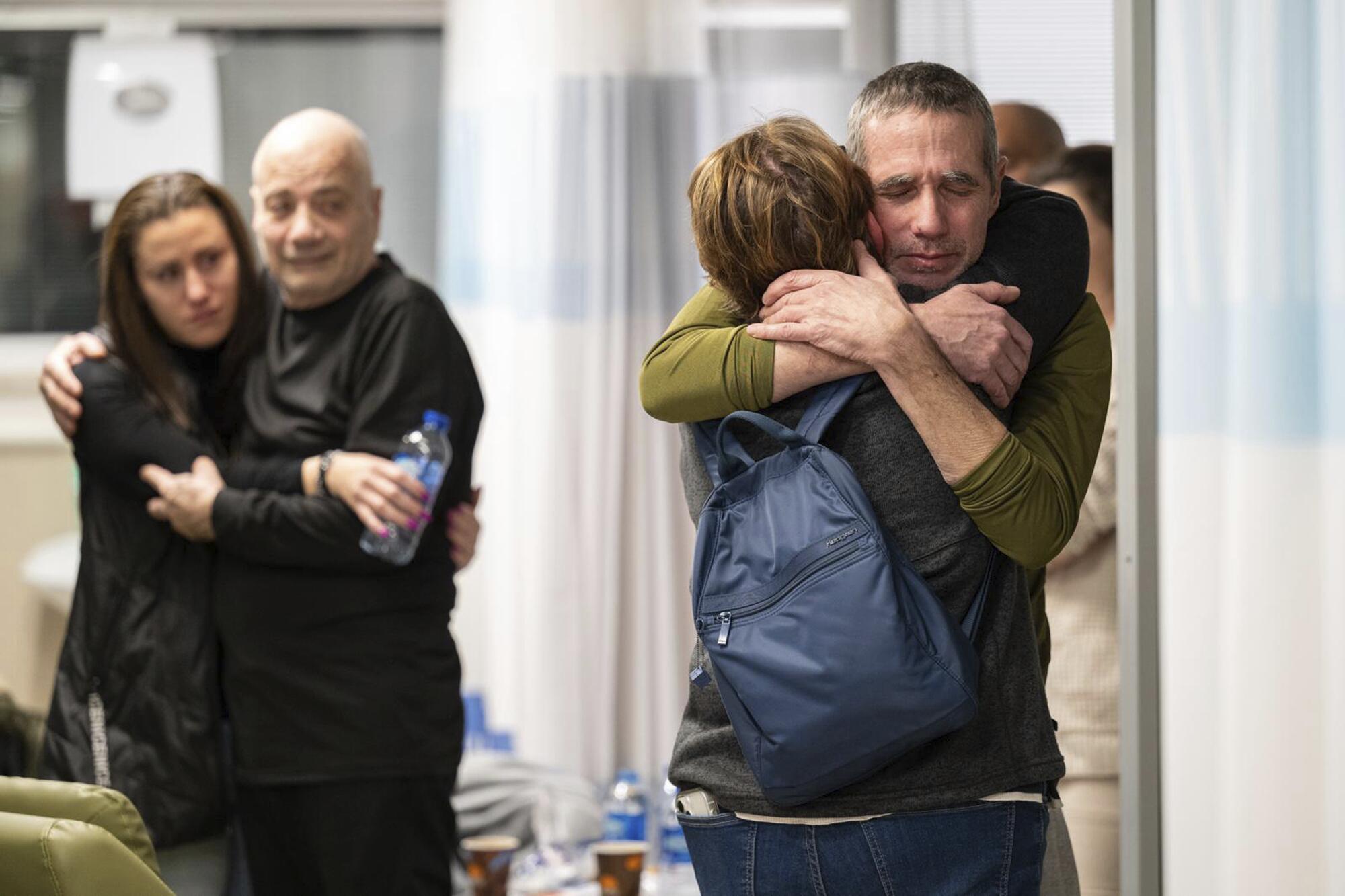
Hostages Fernando Simon Marman, right, and Luis Har, second from left, hug relatives at the Sheba Medical Center in Ramat Gan, Israel, on Monday after being rescued in the Gaza Strip.
(Associated Press)
The prospect of such a move has sparked a wave of opprobrium from aid organizations and governments, including some staunch allies of Israel.
After meeting with King Abdullah II of Jordan on Monday, President Biden said an operation in Rafah should not proceed without “a credible plan” to ensure the safety of those sheltering there.
“Many people have been displaced, displaced several times, fleeing violence to the north and now they are crowded in Rafah, exposed and vulnerable,” he said. “They need to be protected. And we have also been clear from the beginning: we oppose any forced displacement of Palestinians from Gaza.”
Officials from the United States, Egypt, Israel and Qatar met in Cairo on Tuesday to try to forge another truce in Gaza.
Saudi Arabia, which in recent years has flirted with normalizing relations with Israel, warned of “very serious repercussions.”
Some of the harshest criticism came from Josep Borrell, the European Union's top diplomat, who said countries like the United States should take concrete steps to mitigate Israel's military response.
“If you think too many people are being killed, maybe you should provide fewer weapons to prevent so many people from being killed,” he said at a news conference in Brussels on Monday.
Hamas, meanwhile, said an offensive on Rafah would paralyze any negotiations over the hostages.
A ground incursion would be “catastrophic” for humanitarian deliveries in the Strip, said an international aid logistics worker who spoke on condition of anonymity because he was not authorized to comment.
The area around Rafah, including the Gaza-Egypt crossing and the Kerem Shalom crossing between Gaza and Israel, are the main routes for aid delivery.
“An attack would essentially put an end to all of that, without guidance on alternative entry points,” the aid worker said, adding that most entities organized their supply chains from Egypt, but those arriving from Jordan would also be affected. .
Gazans who sought to escape the violence in Rafah are now wondering if they should flee once again, and if so, where to?
“I left my home in northern Gaza more than three and a half months ago and I have yet to find a single square centimeter in Gaza where it is safe,” said Ziyad al Najjar, 63, who was dismantling his tent and preparing to move his 16 relatives to be closer to relatives in the Zawaydeh neighborhood.
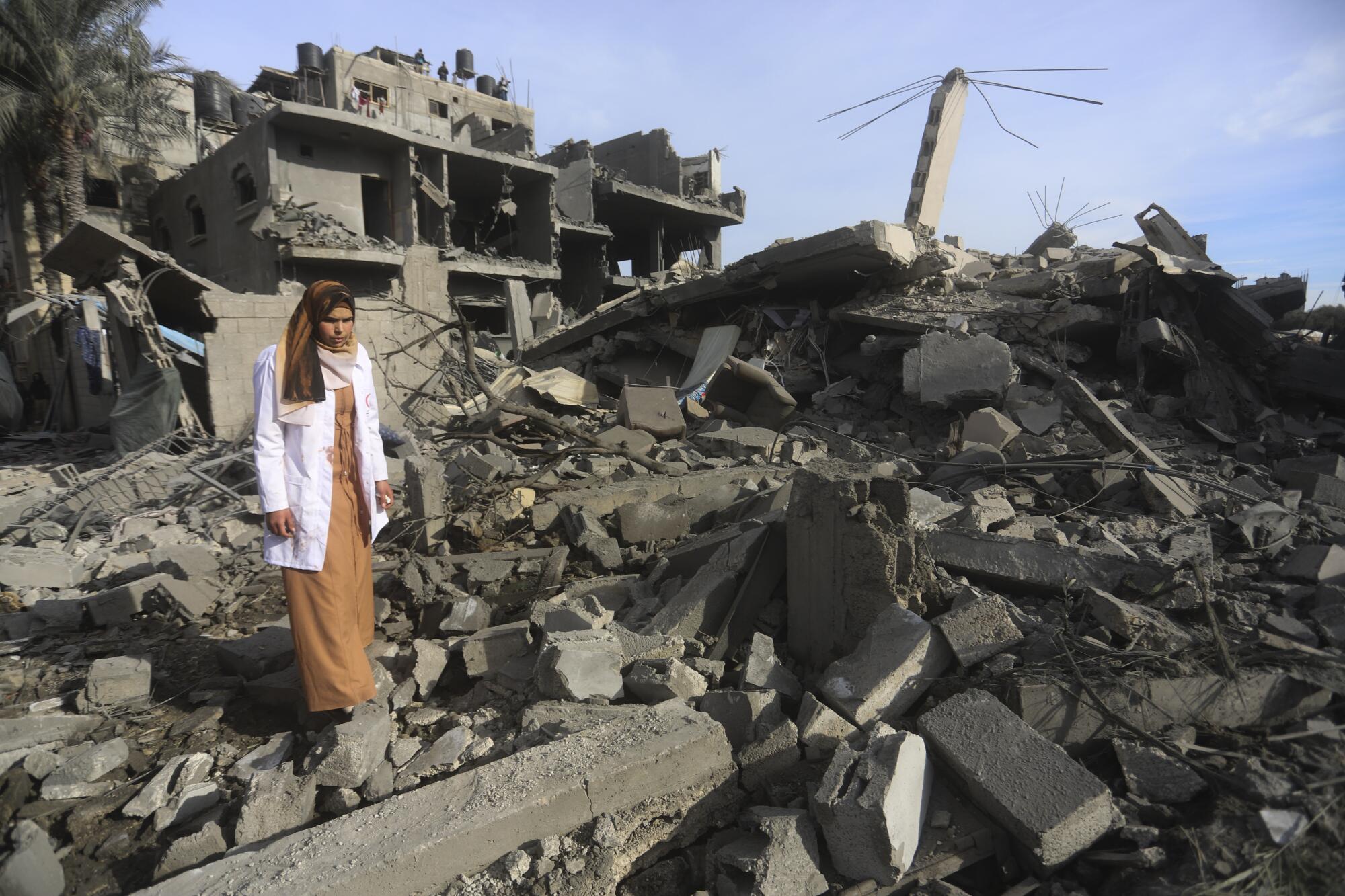
A Palestinian woman walks past the destruction caused by the Israeli bombing of the Gaza Strip in Rafah on Monday.
(Hatem Ali / Associated Press)
Nearby, Zuhair Khalaf, a retired Rafah civil servant, was also thinking about leaving the city. He has been listening to Israeli military officials on various radio stations to determine the safest destination.
But neither option seemed good: I had heard military officials on Israeli radio say that northern Rafah should be safe. But that's just south of Khan Yunis, she said, where there is now massive fighting, so how could I go there?
Meanwhile, the western part of Rafah was filled with people from northern Gaza. Fleeing eastward was impossible; that would take them to open fields near the border with Israel, where there would be no protection from airstrikes.
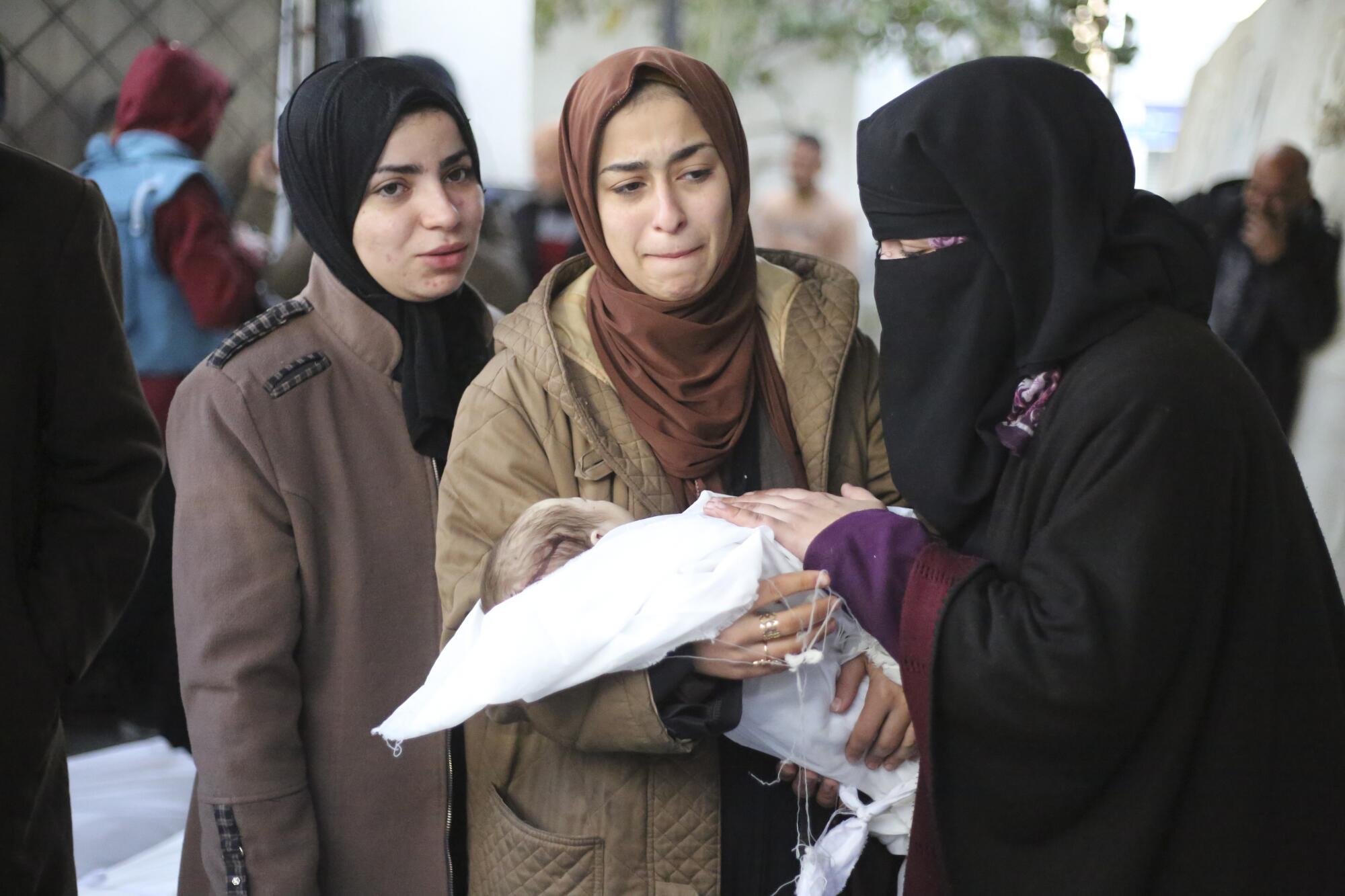
Palestinians mourn the death of a child in the Israeli bombing of the Gaza Strip at a Rafah hospital morgue on Monday.
(Hatem Ali / Associated Press)
After watching Monday's bombing stop short of her family's home, Ashour said the most she could hope for was that the Israeli military would drop leaflets before the attack hit her, instructing civilians on how to get away. of the fighting.
“We're waiting for them to do it,” he said. “We just hope there isn't a tank in front of our door tomorrow morning.”
The Times' special correspondent in Gaza cannot be identified for security reasons. Editor Bulos reported from Beirut.

